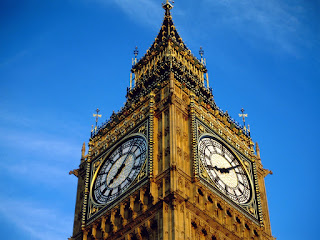I
love Sherlock Holmes. Any time I hear his name, I perk up and wonder what might be new for his 21st century fans. It was over a year ago that I saw something online. "Sherlock BBC" Apparently Sherlock was coming to television... as a 21st century detective. I was skeptical. Oh, so skeptical. Yet very interested.
Finally, Masterpiece Mystery aired the episodes here in the states and I was able to watch them online. The first episode was amazing. I decided that Sherlock definitely worked in the 21st century and that Benedict Cumberbatch was the perfect choice to play him! Here are my reviews of the show:
[I took out some of the spoilers, but some are still there... FYI]
Season One Episode One: A Study in Pink
The police are investigating the deaths of a series mysterious suicides that are all linked by the same pill. Detective Inspector Lestrade turns to Sherlock Holmes for help in figuring out the strange deaths - deaths which Sherlock believes to be the work of a serial killer. Meanwhile, Sherlock is introduced to John Watson and the two decide to become flat mates. John starts to get to know and trust Holmes in spite of the consulting detective's arrogance. Sherlock eventually discovers the serial killer and goes to see him, careless of the danger he is placing himself in. John saves Sherlock's life by shooting the serial killer who reveals that the entire scheme was invented by a man called Moriarty.
Negatives: Foul language pops up here and there. I can't remember how many times because I edited it out. Though Sherlock and Watson are *NOT* gay, the gay lifestyle is mentioned and approved of in a couple of instances. Gross.
I was a bit disturbed by the gay references in this episode, but my relief that Sherlock and Watson are not gay themselves was intense. I had been quite worried about that aspect. In any event, this episode was my favorite of the first season.
Season One Episode Two: The Blind Banker
Holmes is hired by an old friend to investigate a mysterious break-in at a bank in the City. He discovers that symbols spray-painted onto an office wall are a coded message intended for an employee of the bank, who is later discovered dead in his flat. The next day, a journalist is killed and the same symbols are found nearby. Holmes and Watson follow a trail of clues that link the two dead men to a Chinese smuggling ring, who are trying to retrieve a valuable item that one of them stole. Holmes eventually cracks the coded message based on Suzhou numerals and a book cipher, but not before Watson and a female friend are kidnapped by the criminals. Holmes rescues Watson's friend but the leader of the gang escapes. After escaping, the leader of the gang is in communication with her superior, who is identified by the initial "M".
Negatives: One or maybe two swearwords.
I felt like parts of this episode were a little darker than necessary, but overall I enjoyed it. I didn't think they showed Sherlock's abilities to their full potential, but it was still a good episode.
Season One Episode Three: The Great Game
Sherlock Holmes is commissioned by his brother Mycroft to investigate the suspicious death of a government employee who was working on a top-secret defence project: the Bruce-Partington Project. After apparently rejecting the case and handing it over to Watson, Holmes begins to be taunted by a criminal who puts his victims into explosive vests and sets Holmes deadlines to solve the apparently unrelated cases, which include a twenty-year-old cold case involving the shoes of a drowned boy, the disappearance of a businessman, the death of a TV personality and the death of an art gallery guard. As Holmes solves the cases, he finds links between them. After clearing up the original case of the civil servant, Holmes tries to force his unseen adversary to reveal himself. Near the end of the episode Holmes and Moriarty reach a standoff and Jim reveals that he is responsible for the crimes. [The episode ends on a cliffhanger mid-standoff. GAH!]
Negatives: Some language. Watson spends the night with his girlfriend. A few gay references.
This episode shows Sherlock's character quite well in my opinion. He gets so wrapped up in what he's doing and he has a total lack of normal human emotion. This episode was better than the second one as far as showing off just who Sherlock is.
Overall, I was quite impressed with the show. The bad things were pretty easy to edit out for the most part. There is some violence in this show as well as a few intense moments, but I didn't put that in as a negative because, quite frankly, I don't see it as such. =) Anyhow... Ending the season on a cliffhanger was so cruel! I spent a year coming up with a hundred possibilities for how things were going to end. I didn't even come close to what actually happened in the first episode of season two.
Season Two Episode One: A Scandal in Belgravia
Mycroft hires Holmes and Watson to retrieve compromising photos of a minor royal held on the camera phone of Irene Adler, a ruthless and brilliant dominatrix who also trades in classified information extracted from her rich and powerful clients. Holmes obtains Adler's phone, but discovers it is booby-trapped and requires a code to disarm it. When Adler discovers that the CIA are on her trail, she disappears and is then apparently killed, only to reappear months later when the coast is clear. Adler manipulates Holmes into deciphering a coded message on her phone which she obtained from another well-connected client. She sends the message to Moriarty, who in turn uses it to foil a British counter-terror operation.
Negatives:
This is by far the worst thing that was ever put in front of my eyes. There was some language. Strong gay references. Waaaaaay too much disrobing.
I cannot recommend that anyone watch this episode. It's a pity because there is so much potential in it. There are some great lines! If they could have just made Irene Adler a different person... In any event, after this episode, I was hesitant to watch the next one. A friend of mine said that she's going to give the show up altogether.
Season Two Episode Two: Hound of the Baskervilles
Sherlock and John are contacted by Henry Knight, a man plagued by the traumatic memories of the death of his father at the hands of a monstrous hound on Dartmoor years before. Investigating Dewer's Hollow, a local spot where the beast was allegedly seen, as well as the nearby Ministry of Defence testing site Baskerville, Holmes and Watson uncover a conspiracy wherein one of the Baskerville scientists, Dr. Frankland, is continuing the work of an aborted project to create a hallucinogenic gas for military use. The episode concludes with a confined Jim Moriarty being taken out of his cell.
Negatives: Foul language (increased from the first season). I can't remember any other negatives right now...
This was the creepiest episode as far as I'm concerned. I still really liked it, though! I think it could rate as one of the scariest things that I have ever watched, but that's because the hound kept bringing back memories of a nightmare I've had since I was pretty young. (That nightmare including the wolves from The Lion, the Witch, and the Wardrobe) I want to see this episode again, though... I wasn't able to watch it all in one sitting because I got interrupted.
Season Two Episode Three: The Reichenbach Fall
After a series of high-profile cases lead Sherlock to fame, Moriarty launches a simultaneous heist on the Tower of London, Bank of England and Pentonville Prison, for which he allows himself to be captured and put on trial. He secures a not guilty verdict through blackmailing the jury and visits Sherlock, explaining he still intends to 'burn' him, taunting him with a "final problem" for him to solve. Soon afterwards, Moriarty arranges for the kidnapping of the children of an American ambassador, who are terrified of Sherlock once he has them rescued. This, in conjunction with the ease with which Sherlock solves the case, leads to Sherlock becoming a suspect. Sherlock escapes arrest and soon learns Moriarty has constructed a fake identity as an actor hired by Sherlock, and has seeded the press with the story. The two meet on the roof of a hospital, where Moriarty explains that assassins will kill John, Mrs. Hudson and Lestrade if Sherlock does not commit suicide; he wants Holmes to do this to cement his planted story of Sherlock being a fraud. After a tense conversation in which Moriarty realizes the two are enough alike that Sherlock could extract the code to call off the assassins from him, Moriarty shoots himself. Sherlock calls John and 'confesses' to being a fraud (which John refuses to believe) and then apparently steps off the roof. He is vilified in the press. John and Mrs. Hudson meet alone at his grave to say their goodbyes; the final seconds show Sherlock watching from afar, having faked his death in a manner unseen by the viewers.
I. loved. this. episode. It was done so well! And I think I have an idea about how Sherlock survived, but I'm most likely wrong. I was way off base when last season ended! But I'll write my idea down somewhere just in case I'm right... then I can tell everyone that I am a genius! LOL
In conclusion, here is something from Wikipedia:
"Steven Moffat felt that he and co-creator Mark Gatiss had outdone Conan Doyle in their version of Holmes' fall and Moffat added that, in that much-discussed sequence, there was still "a clue everybody's missed." After the end of the final episode of the second series, Moffat and Gatiss both announced on Twitter that a third series was commissioned at the same time as series two. Steven Moffat has said that he is hoping the series will be screened "hopefully before the year's out.", though this has been contested by executive producer Sue Vertue. Moffat aspires to tackle the details from the original stories that are rarely covered in adaptations, such as Watson marrying and living apart from Holmes. A part of the resolution to "The Reichenbach Fall" has been filmed."
I used Wikipedia for the plot synopsis, too. And got the pictures from google. So there's the credit where credit is due. I have high hopes for the next season... those hopes including an absence of Irene Adler.












































